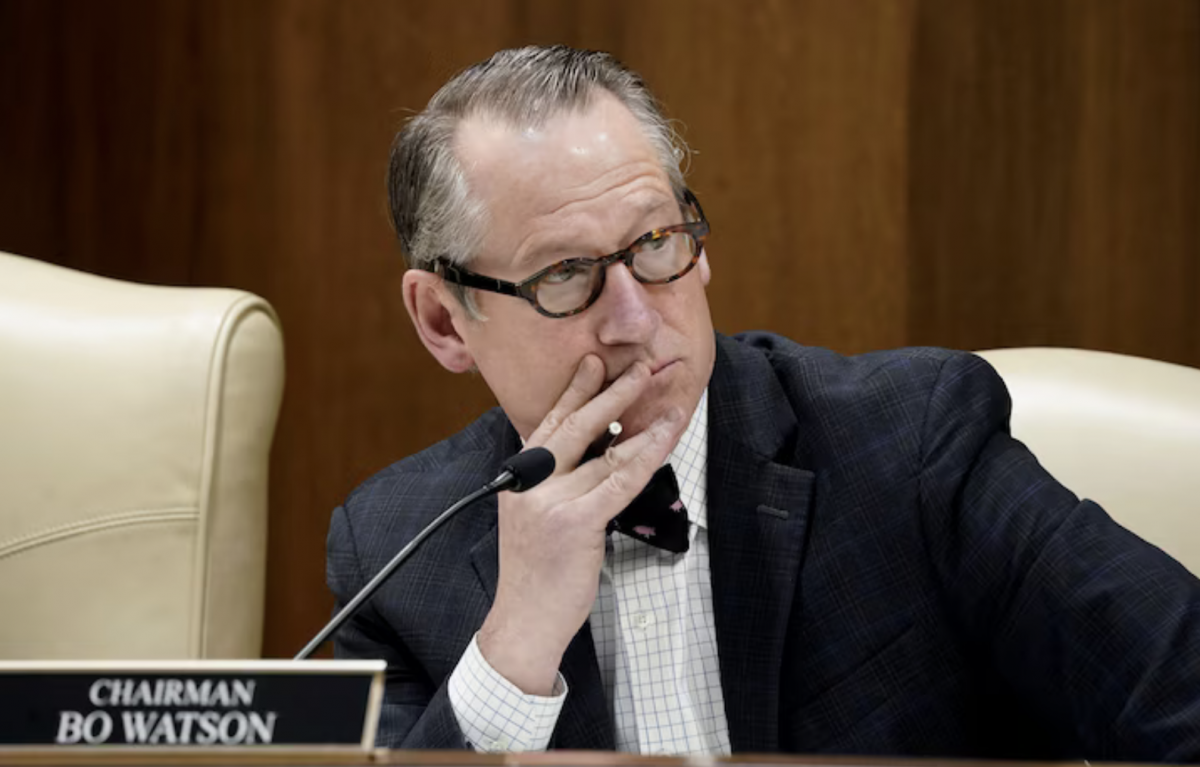A new congressional bill aims to improve fisheries and environmental quality in the Mississippi River basin with a federally funded commission.
“This is a bill that’s way past its due,” said U.S. Rep. Troy Carter Sr. (D-Louisiana) who is co-sponsoring the Mississippi River Basin Fishery Commission Act of 2025 with U.S. Rep. Mike Ezell (R-Mississippi). It was introduced Feb. 24 in the House Committee on Natural Resources.
The goal is to fund grants for habitat restoration, fisheries research and the mitigation of invasive species.
It aims to support the growth of the fishing industry throughout the basin, as well as reinforce partnerships between local, state and federal agencies involved in the management of the river and its tributaries. The commission would be federally funded, and draw down on federal dollars to support restoration projects and fisheries management.

Credit: Tegan Wendland/Mississippi River Basin Ag & Water Desk, Aerial support provided by SouthWings.
“The Mississippi, a mighty, mighty estuary, is not only a major tool for moving commerce back and forth, but it’s also a place where people make a living, fishing on the river,” Carter said. “This bill endeavors to make sure that we are protecting that asset.”
While commercial fishing has declined in recent decades, and updated research is necessary to establish the exact value of recreational, commercial and subsistence fishing in the Mississippi River, one study valued it as a billion dollar industry.
The river has long faced challenges, such as industrial and agricultural pollution, habitat destruction and prolific spread of invasive species. Part of the difficulty in addressing these problems comes from the sheer size of the basin, with its geography covering over a third of the continental United States.

Credit: Tegan Wendland / Mississippi River Basin Ag & Water Desk
“For decades, states have struggled to find dedicated resources to adequately manage large river species that cross many state, federal, and tribal jurisdictions,” Ben Batten, deputy director of Arkansas Game and Fish Commission and chair of the Mississippi Interstate Cooperative Resource Association, said in a press release.
Large river species, such as invasive carp, are a problem the new commission would address, building on the work of the interstate cooperative, a multistate, multi-agency organization formed in 1991 that has focused on reducing invasives. The four varieties of carp originating from Asia – silver carp, black carp, grass carp and bighead carp – have spread at alarming rates and harm existing fisheries.
Communication amongst the numerous jurisdictions in the basin — states, cities, towns and tribal entities — can be difficult. Collaborative groups encourage more cohesive policy between basin states, such as the Mississippi River Cities and Towns Initiative and the Upper Mississippi River Basin Association, and there have been efforts to pass a river compact.
The United States and Canada share a partnership through the Great Lakes Fishery Commission. The Mississippi River Basin Fishery Commission would be part of the Department of the Interior, and include other agencies, like the U.S. Geological Survey, Fish and Wildlife Service and Army Corps of Engineers.
Due in large part to a lack of standardized testing, and often limited resources, health experts and government agencies often offer conflicting advice as to whether fish from the Mississippi River are safe to eat. Fish advisories warning against consumption of fish in one area may not exist in neighboring states, varying from one side of the river to the other.
The bill authors request $1 million to launch the commission in 2026, then $30 million each year for the following three years
While many fish the Mississippi River for sport rather than to eat, some rely on the river as a source of food.

General health advice for eating fish caught from the Mississippi does exist, such as throwing back the biggest and fattiest fish, washing them before fileting, and broiling or grilling the catch to avoid certain pollutants.
Halle Parker contributed to this story. This story is a product of the Mississippi River Basin Ag & Water Desk, an independent reporting network based at the University of Missouri in partnership with Report for America, with major funding from the Walton Family Foundation.









